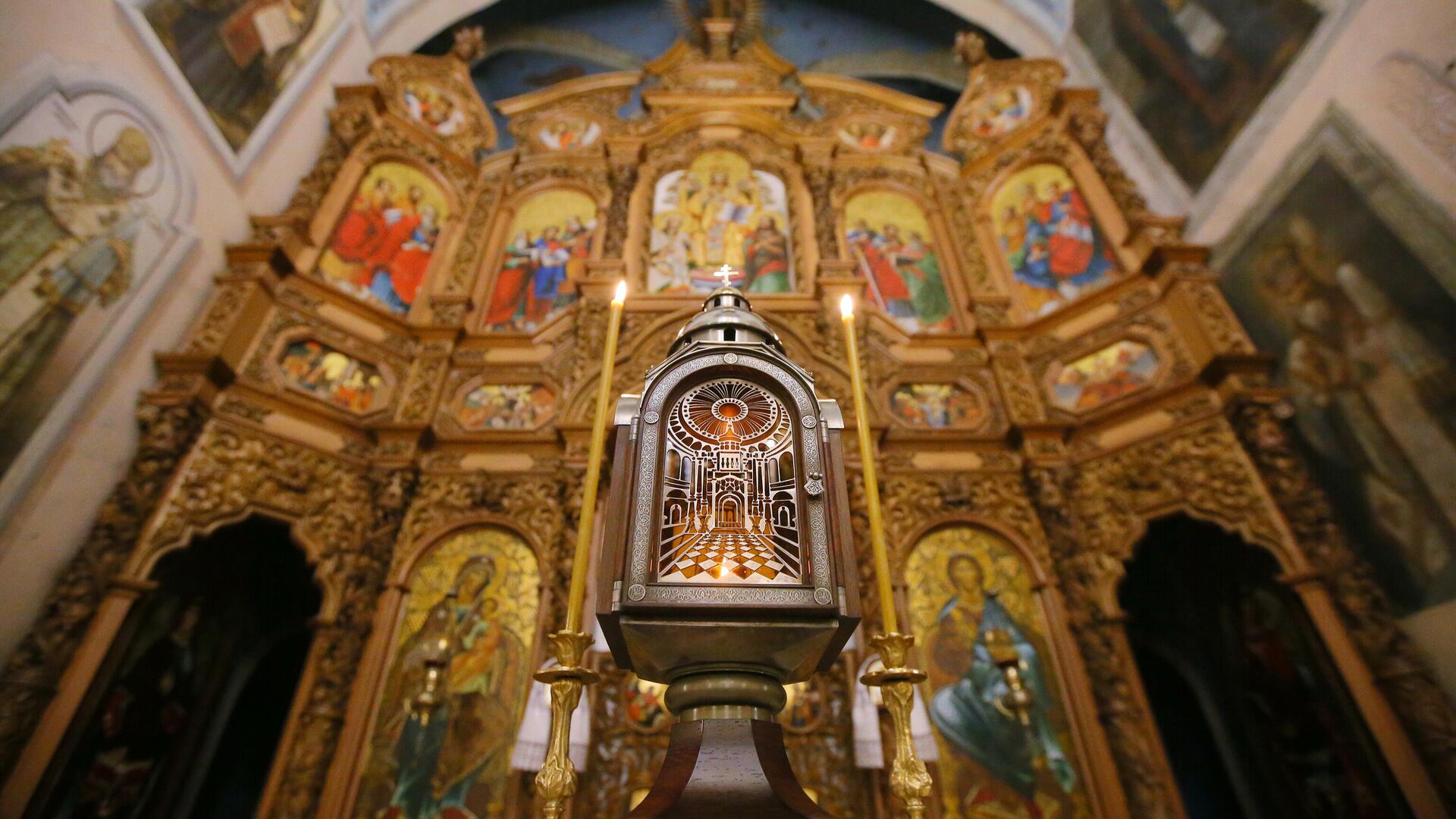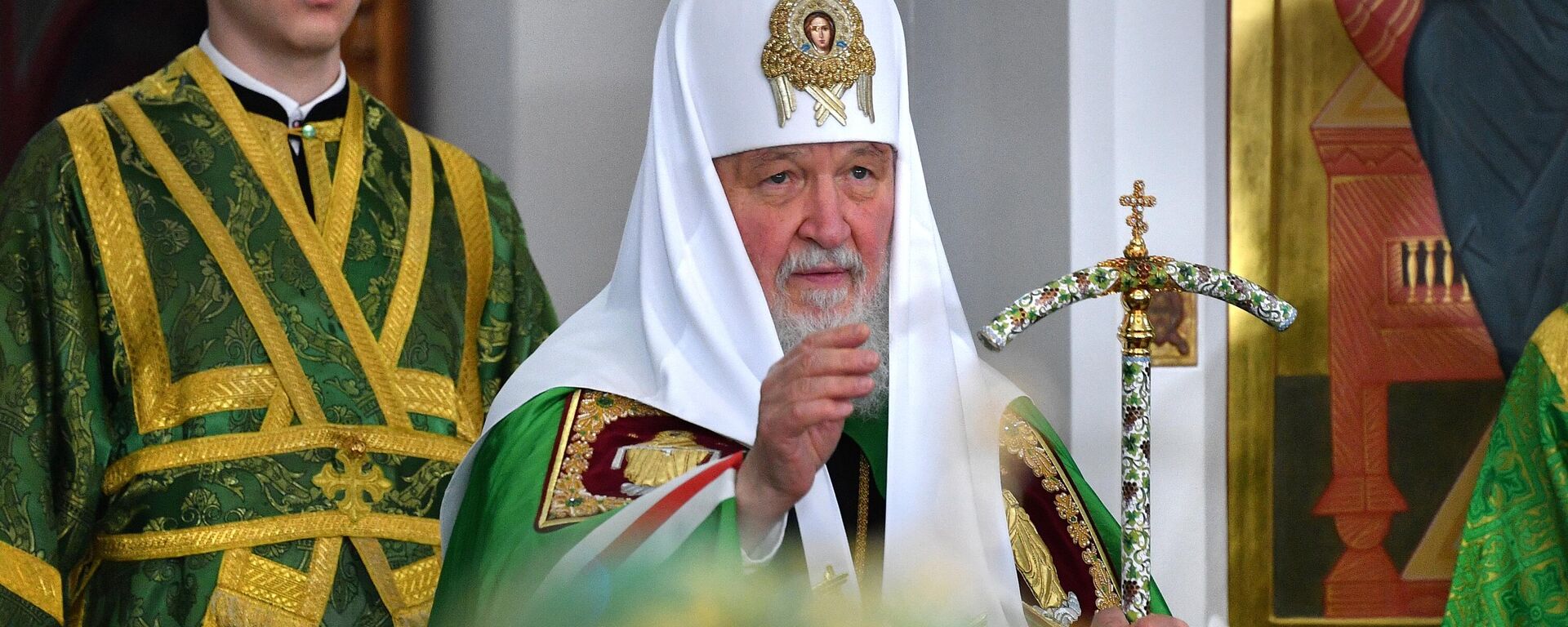https://en.sputniknews.africa/20230626/kiev-unesco-agree-to-take-christian-valuables-out-of-kiev-pechersk-lavra-russian-foreign-intel--1060163887.html
Ukraine, UNESCO Agree to Take Church Relics Out of Kiev-Pechersk Lavra: Russian Foreign Intel
Ukraine, UNESCO Agree to Take Church Relics Out of Kiev-Pechersk Lavra: Russian Foreign Intel
Sputnik Africa
Kiev's attack on the Lavra is a logical follow-up to the secret removal of ancient Byzantine icons from Ukraine, which have been on display in the French... 26.06.2023, Sputnik Africa
2023-06-26T10:46+0200
2023-06-26T10:46+0200
2023-06-26T14:08+0200
russia's special operation in ukraine
russia
ukraine
svr
religion
intelligence
italy
france
germany
west
https://cdn1.img.sputniknews.africa/img/07e7/06/1a/1060164318_0:160:3073:1888_1920x0_80_0_0_d2753b271eea8297d72e189c1baeeafb.jpg
Ukraine and the United Nations Educational, Scientific and Cultural Organization (UNESCO) have reached an agreement on taking out Christian valuables, including holy relics, from the Kiev-Pechersk Lavra and transferring them to Western countries, the Russian Foreign Intelligence Service (SVR) said on Monday. An inventory of church property was carried out, and finances were allocated for the transportation of Christian valuables from Ukraine to Europe, the statement said, adding that transport was also prepared. The Intelligence Service called Ukraine's actions a continuation of the story of the secret export of ancient Byzantine icons from Ukraine.According to the SVR, for Russia, the defense of the Kiev-Pechersk Lavra has a "profound spiritual dimension," which means that the determination to bring the special operation to an end "is only getting stronger."The latest round of the conflict around the Kiev-Pechersk Lavra began with the notification of the Ministry of Culture of Ukraine to the Ukrainian Orthodox Church (UOC) about the unilateral termination of the monastery's lease, which required the monks to depart the lavra on March 29.Over the past year, the Ukrainian authorities have organized the largest wave of persecution against the UOC in the country's recent history, due to its ties to the Russian patriarchate. Local authorities in different regions of Ukraine decided to ban the activities of the UOC, and a bill was introduced in the Ukrainian parliament that would ban it de facto in Ukraine. The authorities imposed sanctions against some members of the clergy of the UOC. The Security Service of Ukraine began opening criminal cases against clergy of the UOC, conducting "counterintelligence activities" – searches of bishops and priests, in churches and monasteries, in search of evidence of "anti-Ukrainian activities.
https://en.sputniknews.africa/20230416/russian-orthodox-center-to-be-opened-in-the-democratic-republic-of-congo-1058641523.html
russia
ukraine
italy
france
germany
west
Sputnik Africa
feedback@sputniknews.com
+74956456601
MIA „Rossiya Segodnya“
2023
Sputnik Africa
feedback@sputniknews.com
+74956456601
MIA „Rossiya Segodnya“
News
en_EN
Sputnik Africa
feedback@sputniknews.com
+74956456601
MIA „Rossiya Segodnya“
Sputnik Africa
feedback@sputniknews.com
+74956456601
MIA „Rossiya Segodnya“
russia, ukraine, svr, religion, intelligence, italy, france, germany, west, russian orthodox church
russia, ukraine, svr, religion, intelligence, italy, france, germany, west, russian orthodox church
Ukraine, UNESCO Agree to Take Church Relics Out of Kiev-Pechersk Lavra: Russian Foreign Intel
10:46 26.06.2023 (Updated: 14:08 26.06.2023) Kiev's attack on the Lavra is a logical follow-up to the secret removal of ancient Byzantine icons from Ukraine, which have been on display in the French Louvre since June 14, according to intelligence reports.
Ukraine and the United Nations Educational, Scientific and Cultural Organization (UNESCO) have reached an agreement on taking out Christian valuables, including holy relics, from the Kiev-Pechersk Lavra and transferring them to Western countries, the Russian Foreign Intelligence Service (SVR) said on Monday.
"According to the SVR, an agreement has been reached between the Kiev authorities and representatives of UNESCO on taking Christian valuables, including holy relics, out of the territory of the Kiev-Pechersk Lavra, and their subsequent transfer to the museums of Italy, France, Germany and the Vatican under the pretext of 'rescuing from Russian missile strikes'," the SVR said in a statement.
An inventory of church property was carried out, and finances were allocated for the transportation of Christian valuables from Ukraine to
Europe, the statement said, adding that transport was also prepared.
"There is no doubt that the return of the relics is not included in the plans of the West and the Kiev junta subject to it," the statement added.
The Intelligence Service called Ukraine's actions a continuation of the story of the secret export of ancient Byzantine icons from Ukraine.
"The heretics' attempt on the Kiev-Pechersk Lavra is a logical continuation of the story with the secret export from the territory of Ukraine of the oldest Byzantine icons, exhibited in the French Louvre since June 14th of this year," the statement read.
According to the SVR, for Russia, the defense of the Kiev-Pechersk Lavra has a "profound spiritual dimension," which means that the determination to
bring the special operation to an end "is only getting stronger."
The Russian Orthodox Church is concerned about the reports about the possible removal of relics and shrines from Kiev, a Church source told Sputnik.
The latest round of the conflict around the Kiev-Pechersk Lavra began with the notification of the Ministry of Culture of Ukraine to the Ukrainian Orthodox Church (UOC) about the unilateral termination of the monastery's lease, which required the monks to depart the lavra on March 29.
Over the past year, the Ukrainian authorities have organized the largest wave of persecution against the UOC in the country's recent history, due to its ties to the Russian patriarchate.
Local authorities in different regions of Ukraine decided to ban the activities of the UOC, and a bill was introduced in the Ukrainian parliament that would ban it de facto in Ukraine.
The authorities imposed sanctions against some members of the clergy of the UOC. The Security Service of Ukraine began opening criminal cases against clergy of the UOC, conducting "counterintelligence activities" – searches of bishops and priests, in churches and monasteries, in search of evidence of "anti-Ukrainian activities.



